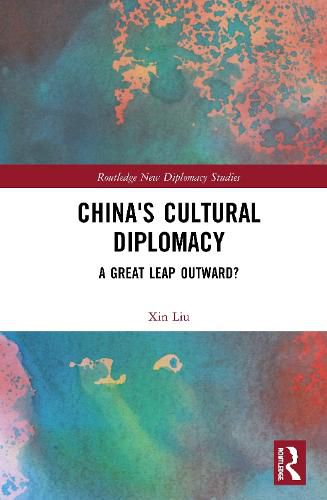Readings Newsletter
Become a Readings Member to make your shopping experience even easier.
Sign in or sign up for free!
You’re not far away from qualifying for FREE standard shipping within Australia
You’ve qualified for FREE standard shipping within Australia
The cart is loading…






This book examines China’s contemporary global cultural footprints through its recent development of cultural diplomacy.
The volume presents an alternative analytical framework to examine China’s cultural diplomacy, which goes beyond the Western-defined concept of ‘soft power’ that prevails in the current literature. This new approach constructs a three-dimensional framework on Orientalism, cultural hegemony and nationalism to decipher the multiple contexts, which China inhabits historically, internationally and domestically. The book presents multiple case studies of the Confucius Institute, and compares the global programme located around the world with its Western counterparts, and also with other Chinese government-sponsored endeavours and non-government-initiated programmes. The author aims to solve the puzzle of why China’s efforts in cultural diplomacy are perceived differently around the world and helps to outline the distinctive features of China’s cultural diplomacy.
This book will be of much interest to students of diplomacy, Chinese politics, foreign policy and International Relations in general.
$9.00 standard shipping within Australia
FREE standard shipping within Australia for orders over $100.00
Express & International shipping calculated at checkout
This book examines China’s contemporary global cultural footprints through its recent development of cultural diplomacy.
The volume presents an alternative analytical framework to examine China’s cultural diplomacy, which goes beyond the Western-defined concept of ‘soft power’ that prevails in the current literature. This new approach constructs a three-dimensional framework on Orientalism, cultural hegemony and nationalism to decipher the multiple contexts, which China inhabits historically, internationally and domestically. The book presents multiple case studies of the Confucius Institute, and compares the global programme located around the world with its Western counterparts, and also with other Chinese government-sponsored endeavours and non-government-initiated programmes. The author aims to solve the puzzle of why China’s efforts in cultural diplomacy are perceived differently around the world and helps to outline the distinctive features of China’s cultural diplomacy.
This book will be of much interest to students of diplomacy, Chinese politics, foreign policy and International Relations in general.